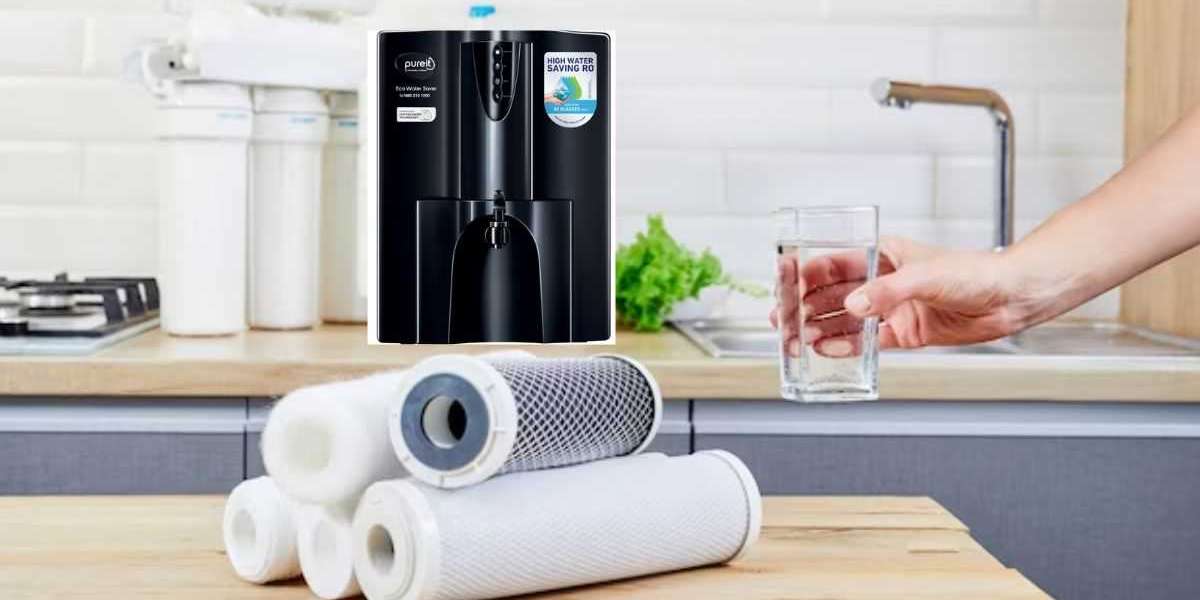In today's world, access to clean, safe drinking water is essential for good health. However, with increasing pollution and contamination, it's becoming increasingly difficult to ensure the quality of tap water. This is the situation where water filters are useful. They are designed to remove impurities and contaminants from water, providing you with clean, potable water for drinking, cooking, and other household needs.
Understanding Water Contaminants
Before choosing a water purifier, it's important to understand the common contaminants found in water. This will help you select a purifier that can effectively address the specific issues in your area. Some common contaminants include:
- Bacteria and viruses: These microorganisms can cause waterborne diseases like typhoid, cholera, and dysentery. For instance, Escherichia coli (E. coli) is a common bacterium found in contaminated water that can lead to severe gastrointestinal illness.
- Heavy metals: Lead, arsenic, mercury, and other heavy metals can be harmful to your health, even in small amounts. Lead exposure can harm the nervous system, particularly in young children.
- Chemicals: Pesticides, herbicides, and industrial pollutants can contaminate water sources. These chemicals can have long-term health effects, including cancer and reproductive problems.
- Dissolved solids: These include minerals, salts, and other substances that can make water hard or unpleasant to taste. Hard water can leave mineral deposits on appliances and fixtures, and it can also dry out skin and hair.
Types of Water Purifiers
Water purifiers come in a variety of varieties, each with pros and cons of their own. Here's a quick rundown of some of the most popular choices:
- Gravity filters: These purifiers use gravity to force water through a filter medium, removing impurities. They are relatively inexpensive but may not be as effective as other options. Gravity filters are often used for camping or emergency situations, as they require no electricity or plumbing.
- Cartridge filters: These purifiers use replaceable cartridges to filter water. They are more effective than gravity filters but may require frequent cartridge replacement. Cartridge filters are a popular choice for home use, as they are easy to install and maintain.
- Reverse osmosis (RO) purifiers: RO purifiers use a membrane to remove impurities from water. They are highly effective at removing a wide range of contaminants but can be expensive to operate. RO purifiers are often used in areas with high levels of contaminants or for people with sensitive health conditions.
- Ultraviolet (UV) purifiers: UV purifiers use ultraviolet light to kill microorganisms in water. They are effective at killing bacteria and viruses but may not remove other contaminants. UV purifiers are often used in commercial settings, such as hotels and restaurants, as they are reliable and easy to maintain.
- Boiling: While not technically a purifier, boiling water can effectively kill microorganisms. However, it's not a practical solution for long-term use. Boiling water is a good option for treating water in emergency situations or when there is no other means of purification available.
Factors to Consider When Choosing a Water Purifier
When choosing a water filter, take into account the following aspects:
- Water quality: The type and severity of contaminants in your water will determine the appropriate type of purifier. If you are unsure about the quality of your water, you can have it tested by a local laboratory.
- Household size: The number of people in your household will influence the purifier's capacity and flow rate. A larger household will need a purifier with a higher capacity to meet their needs.
- Budget: Water purifiers can vary widely in price, so it's important to set a budget before shopping. Consider the initial cost of the purifier, as well as the ongoing costs of replacement cartridges or filters.
- Maintenance: Some purifiers require more maintenance than others, such as regular cartridge replacement or cleaning. Consider how much time and effort you are willing to devote to maintaining your purifier.
- Installation: Consider whether you need professional installation or if you can install the purifier yourself. Some purifiers are easy to install, while others may require plumbing work.
Additional Considerations
- Certification: Look for purifiers that are certified by organizations like NSF International or the Indian Standard Institution (ISI). These certifications ensure that the purifier meets certain standards for quality and performance.
- Warranty: Protection against flaws and piece of mind are two benefits of having a warranty. Look for a purifier with a comprehensive warranty that covers both parts and labor.
- Customer reviews: Read reviews from other customers to get a sense of the purifier's performance and reliability. Look for reviews from people who have similar water quality issues and household needs to yours.
Conclusion
Choosing the best water purifier for your home is an important decision that can have a significant impact on your health and well-being. By understanding the different types of purifiers, considering the factors mentioned above, and doing your research, you can find a purifier that meets your needs and provides you with clean, safe drinking water. Remember, investing in a good water purifier is an investment in your health and the health of your family, just like investing in quality sports accessories can enhance your athletic performance and overall well-being.








